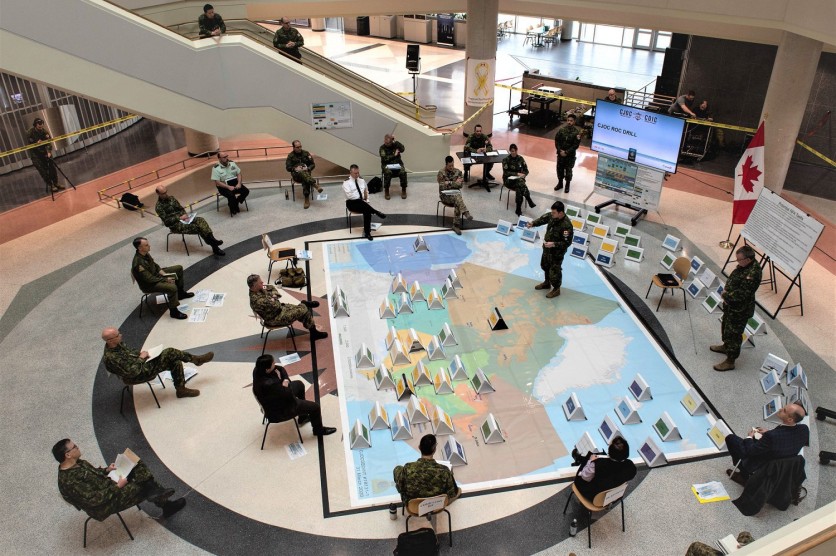Preliminary findings of a mapping survey to track the spread of COVID-19 showed promising results, according to a statement by Facebook on Monday, and will roll out internationally in a few days.
Facebook, together with Carnegie Mellon University, used its anonymized data to analyze people's movement--their connections, and areas where the virus is likely to spread. The survey allows individuals to report their symptoms and their location. It helps scientists understand the probable places of people who might have been infected by the coronavirus, even if a physician is not examining them.

READ ALSO : COVID-19 Update: Coronavirus Vaccine Makers Ask Government's Help to Make Millions of Doses by September
Initial Results are Promising
Facebook told The Verge that the early results of the COVID-19 symptom survey are promising. In just two weeks of its implementation, the study is producing positive results in tracking the spread of the pandemic virus. The social media company produced its first report and new interactive maps, which will be updated daily through this pandemic.
Carnegie Mellon University conducts the survey and does not share any information about symptoms back to Facebook. So far, 150,000 people daily are now submitting symptom reports after clicking on a link in the News Feed, the university said in the report.
Facebook CEO Mark Zuckerberg confirmed that initial results shared by Carnegie Mellon University correlate with public data about confirmed cases of COVID-19. It is a significant indicator that the survey can forecast the spread of the disease soon. Zuckerberg added that based on symptom surveys, the tech company would use aggregated data from the university to produce interactive maps that will update every day.
"I've always believed that helping people come together as a community will help us address our greatest challenges - not just by sharing our experiences and supporting each other in crises but also by working together at scale to solve problems," as Zuckerberg explained in Washington Post.
The world has encountered many pandemics in the past. "But this time, we have a new superpower: the ability to gather and share data for good," said Zuckerberg. He is optimistic that data will play a vital role in responding to the current health crisis, and as the world moves towards the road to recovery.
To be Roll Out Internationally
Beginning Wednesday, Carnegie Mellon University said, "the effort will roll out internationally."
According to Facebook, in a report in The Verge, they explained that they would expand the COVID-19 symptom tracking survey to cover other countries to measure the spread of the virus on a global scale.
Facebook and Carnegie Mellon University will gather data from other parts of the world to determine the reliability of the tool on an international scale. So far, they only have collected data within the United States. Carnegie Mellon University Associate Professor Ryan Tibshirani, who is part of the team, explained that if Facebook users report symptoms in their countries and the participation rate is similar to that in the United States, the information could prove to be valuable in identifying COVID-a9 potential hotspots worldwide.
If successful, Facebook-produced global maps could reveal places where elected officials have been slow to acknowledge the spread of coronavirus within their borders. Admittedly, Zuckerberg said that some governments are not excited about the project. They worried that the maps would reveal the real number of actual infected cases in their countries or the rate the virus is spreading in their areas.
Since 2019, Facebook has been working on disease prevention research. The company launched a series of mapping tools designed to aid scientists in studying population density in outbreak areas and mobility patterns in a particular area.





